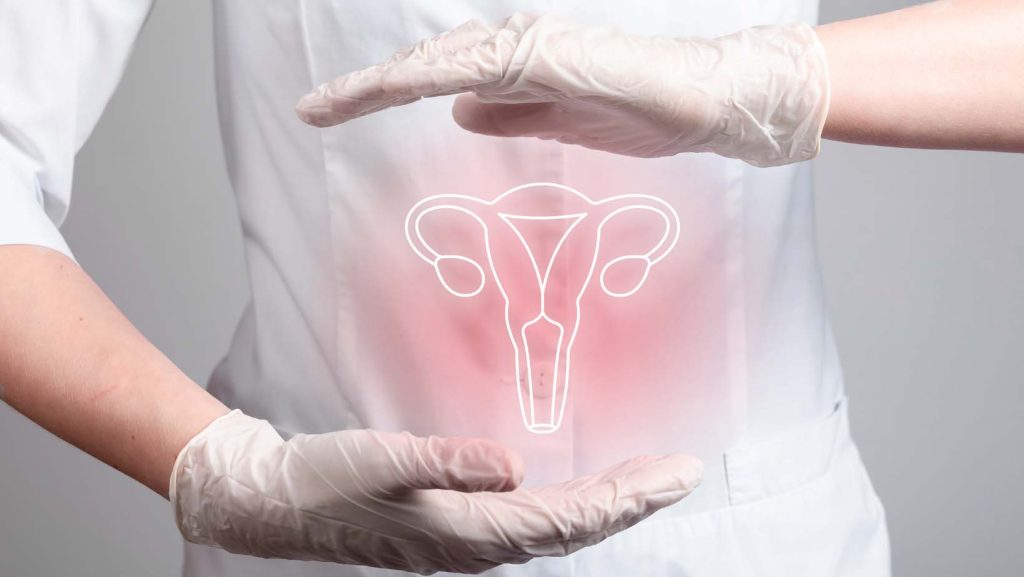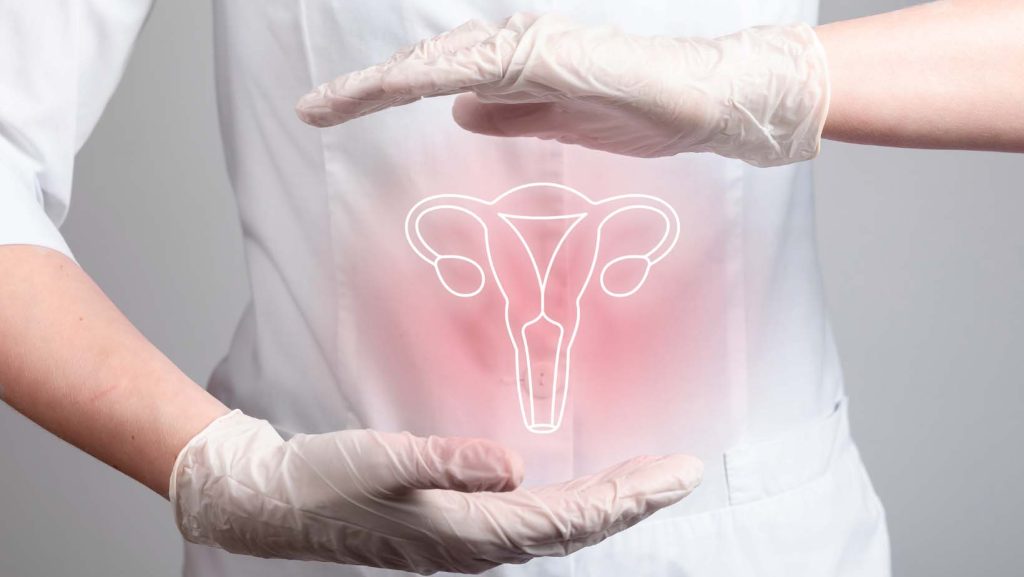Ayurveda provides a holistic perspective on infertility concerns. According to Ayurveda, changes in the body’s doshas (biological energies), dhatus (tissues), malas (waste products), and agni (digestive fire) can cause fertility issues. Various factors can contribute to these imbalances, ultimately affecting fertility.
Causes of infertility
Stress
Emotional and mental stress can disrupt the intricate balance of hormones important for reproduction. Stress is recognized as a significant contributor to fertility issues due to its disruptive effect on the flow of prana, or life force, and its impact on vitality.
Imbalance in Doshas
Ayurveda recognizes three doshas – Vata, Pitta, and Kapha – which govern various physiological and psychological functions in the body. Imbalances in any of these doshas can affect reproductive health. For example:
- Vata imbalance: Among the five subtypes of Vata in Ayurveda, Apana Vata holds particular significance as it governs the reproductive functions of the body. Any disturbance or imbalance in Apana Vata can significantly impact the reproductive organs and processes, potentially leading to infertility issues.
- Pitta imbalance: When Pitta becomes aggravated, it can weaken the Shukra Dhatu, which comprises semen and reproductive fluids. This imbalance can negatively impact sperm quality and quantity. Consuming hot and spicy foods, which have inherently heating qualities, can further exacerbate Pitta imbalance and contribute to decreased sperm count.
- Kapha imbalance: In individuals dominated by Kapha dosha, infertility can be triggered by a diet characterized by cold, heavy, and oily foods, coupled with a sedentary lifestyle. When Kapha dosha predominates, there may be a thickening of fallopian tubes and the development of uterine fibroids, further complicating fertility.
Toxicity and Environmental Factors:
Exposure to environmental toxins, pollutants, and chemicals can accumulate in the body, leading to toxicity. These toxins can interfere with reproductive processes and impair fertility. The accumulation of Ama toxins in the body can disrupt the balance of Agni, or Digestive Fire, leading to health issues in both the mind and body. Therefore, addressing Ama requires treating Agni as well.
Lifestyle Factors:
Unhealthy lifestyle choices such as excessive alcohol consumption, smoking, drug abuse, and sedentary habits can negatively impact reproductive health according to Ayurveda. Lack of proper rest and sleep can disturb the body’s natural rhythms, weaken the immune system, and contribute to hormonal imbalances affecting fertility. A diet lacking in essential nutrients can hinder fertility by depriving the body of the nourishment it needs to support reproductive function. Excessive exercise may lead to irregular menstrual cycles, which can affect ovulation and fertility.
Hormonal imbalance
Hormonal imbalances, such as those found in conditions like Polycystic Ovarian Syndrome (PCOS) and anovulation, can lead to infertility. In the case of PCOS, an imbalance in Kapha can hinder proper follicle development, while an imbalance in Vata can result in premature luteinization of follicles, leading to anovulation.
Genetic Factors:
Ayurveda recognizes that genetic factors play a significant role in shaping an individual’s constitution and susceptibility to various health conditions, including fertility issues. This acknowledgment extends to hereditary predispositions, emphasizing the influence of familial traits on one’s health and reproductive wellness.
Factors enhancing Fertility
Ayurveda offers specific treatments that are often used to enhance fertility and support reproductive health in women. These treatments are tailored to the individual’s constitution, imbalances, and specific fertility concerns. Some of the common Ayurvedic treatments for fertility include:

Uterine Basti:
- Basti involves the application of medicated oils or herbal decoctions into the rectum or vagina. Uterine basti, in particular, entails the introduction of herbal oils or ghee into the uterus via the vaginal route. The application of warm herbal oils or ghee during the treatment nourishes the reproductive organs, promotes regular menstrual cycles, and improves the quality of the uterine lining.
- Uttar Basti aids in detoxifying the reproductive tract, including the uterus and fallopian tubes. This therapy is effective in balancing Vata dosha. Uterine basti is commonly prescribed for women experiencing conditions like endometriosis, or infertility.
- Basti, or enema therapy, holds significant importance in Ayurveda for addressing the vitiation of Apana Vata, particularly during painful episodes and to prevent dysmenorrhea. This therapy involves administering medicated oils through the rectum to pacify Apana Vata and restore balance. Known for its calming effect on the brain, Shirodhara rejuvenates the nervous system, releases emotions, and alleviates stress-induced menstrual disorders. Many women encounter significant physical discomfort and pain during menstruation, a condition known as dysmenorrhea. Research suggests a correlation between stress levels and the prevalence of dysmenorrhea. Meditation and breathwork is one of the best ways to cope up with this.
Herbal formulations:
Herbs like Ashwagandha, Ashoka, Lodha, Shatavari, Amalaki, Jeevanti, Dashmool, etc are said to be beneficial formulations. A blend of herbs is employed in infertility treatment. However, one cannot take these herbs without proper consultation with an Ayurvedic doctor.
Yoni Pichu:
Yoni Pichu, an Ayurvedic therapy for females, involves placing a sterile cotton swab soaked in medicated oil or ghee into the vagina. This treatment aims to enhance the health of the vagina, it is commonly recommended for various gynaecological issues, including infertility. The application of medicinal oil to the vaginal canal nourishes and maintains the well-being of the vaginal tissues. Yoni Pichu can be beneficial for women experiencing vaginal dryness, infections which may affect fertility.
Shirodhara:
Shirodhara is a profoundly soothing treatment where a continuous flow of warm herbal oil or medicated liquids is gently poured onto the forehead, targeting the third eye area. This therapy aids in mind relaxation, stress reduction, and nervous system equilibrium, which can be advantageous for promoting hormonal balance and fertility. Shirodhara is especially beneficial for women facing stress-induced infertility or irregular menstruation.
Healthy lifestyle
Sufficient sleep, effective stress management, proper diet, and regular exercise are crucial for maintaining hormonal equilibrium and overall health. Although yoga does not offer a guarantee of conception, it can enhance fertility rates and increase the likelihood of conceiving. Yoga practices stimulate the ovaries and uterus, promoting improved blood circulation and supply to the reproductive organs.
These Ayurvedic treatments can be used alone or in combination with other holistic approaches to support fertility and reproductive health in women. It’s important to consult with a qualified Ayurvedic practitioner to determine the treatments based on individual needs, constitution, and fertility goals. Additionally, these treatments should be integrated into a comprehensive approach that includes dietary and lifestyle modifications, stress management techniques, and regular follow-up to monitor progress and adjust treatment as needed.
Watch the Holistic Wellness Tips by Sri Sri Ayurveda Hospital
Unveil the ancient wisdom of Ayurveda for a holistic approach to enhance fertility. Begin your journey by consulting a qualified Ayurvedic practitioner. Their expertise tailors a personalized plan to address your unique needs, maximizing its effectiveness. Ayurveda offers a multifaceted approach, incorporating dietary adjustments, herbal remedies, and customized lifestyle modifications. Discover the potential of this traditional practice to elevate your overall well-being and transform your menstrual experience. Embrace a holistic path towards menstrual wellness – let Ayurveda guide you.
At Sri Sri Ayurveda Hospital, we also offer online consultation support with our Ayurveda specialists to get the right guidance from the comfort of your home. Connect to our specialists and plan an individual path back to health.


